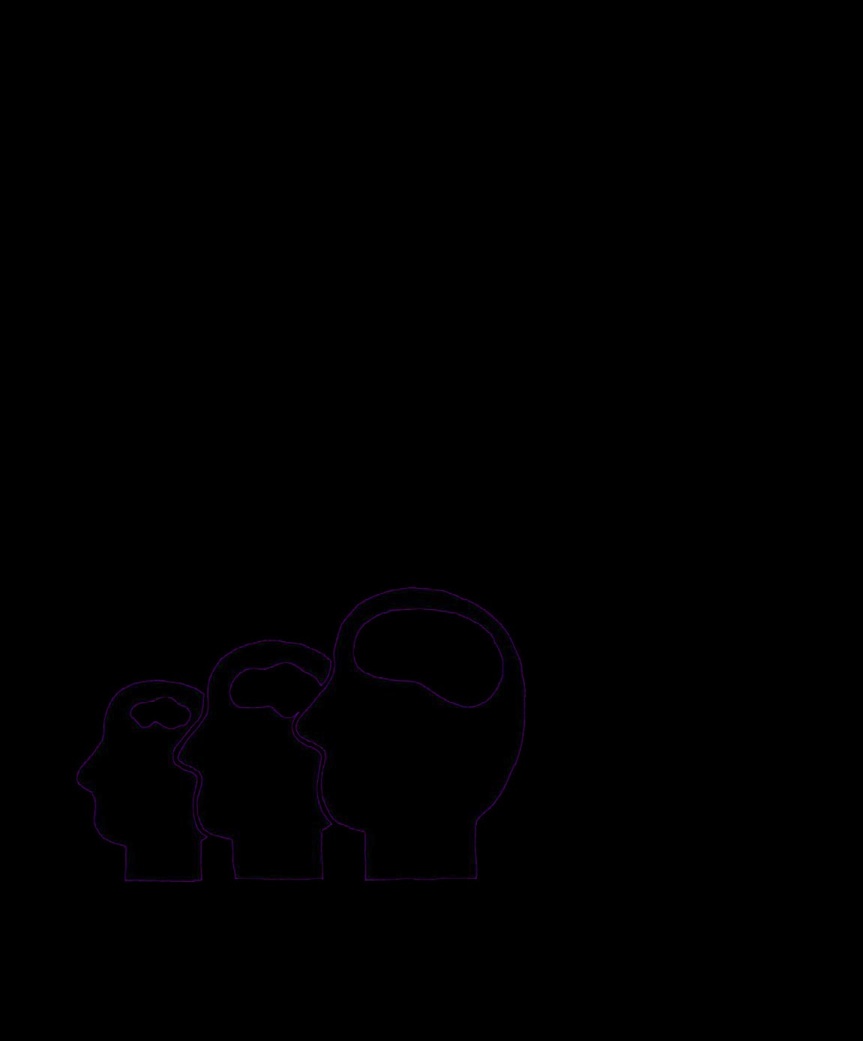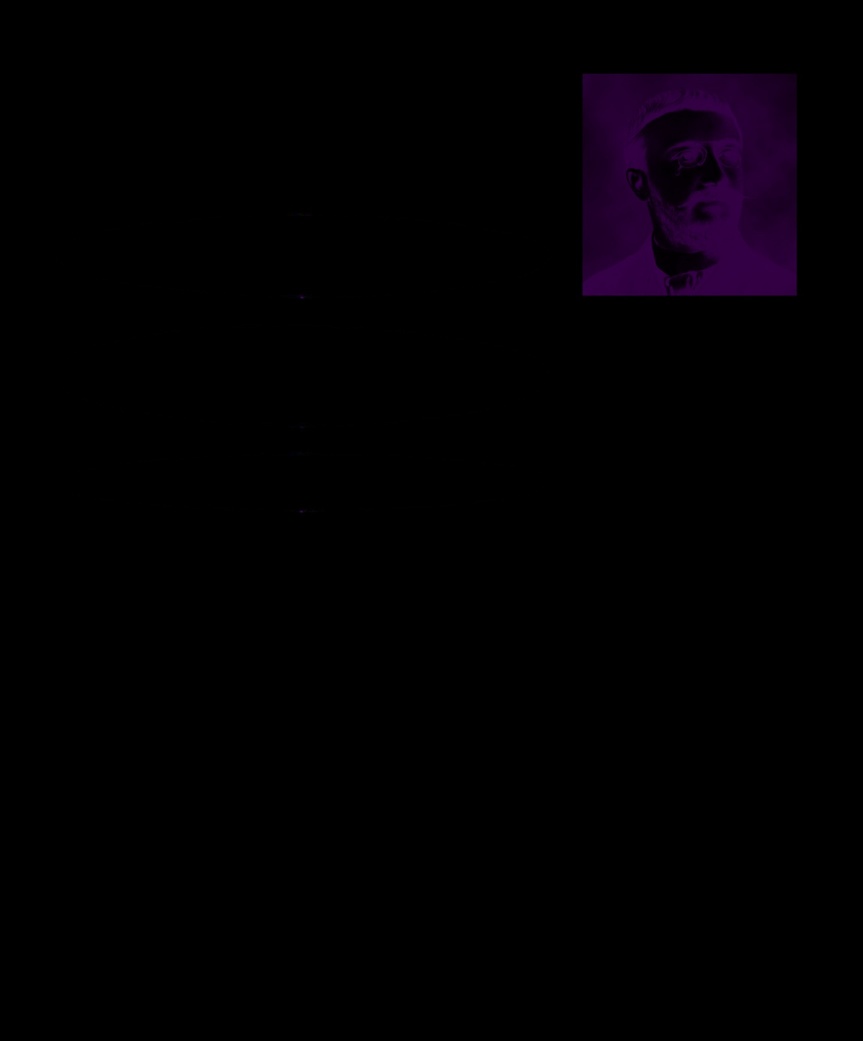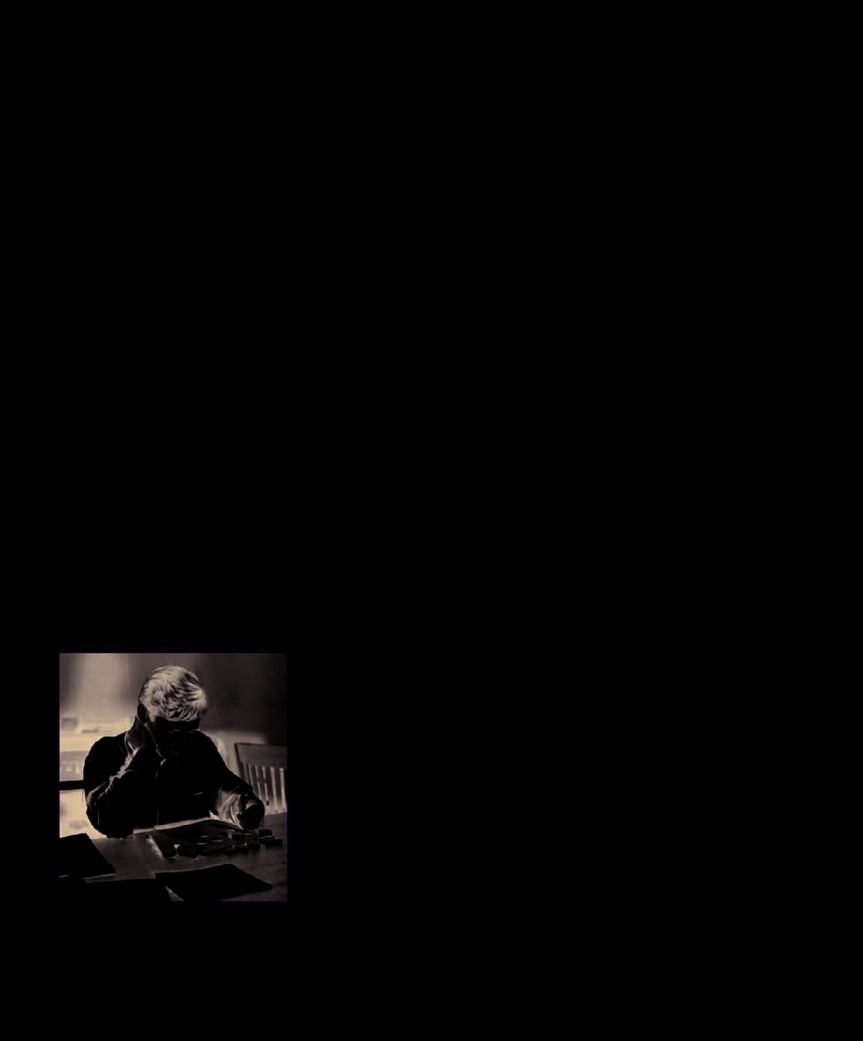The Psychology Book (16 page)
Read The Psychology Book Online
Authors: Unknown

PHILOSOPHICAL ROOTS 49
See also:
Donald Hebb 163 ■ Bluma Zeigarnik 162 ■ George Armitage Miller 168–73 ■ Endel Tulving 186–91 ■ Gordon H.
Bower 194–95 ■ Daniel Schacter 208–09 ■ Frederic Bartlett 335–36
I
n 1885, Hermann Ebbinghaus recite a series correctly at speed.
became the first psychologist
He tested different list lengths and
to systematically study
different learning intervals, noting
learning and memory by carrying
the speed of learning and forgetting.
out a long, exhausting experiment
Ebbinghaus found that he could
on himself. Philosophers such as
remember meaningful material,
John Locke and David Hume had
such as a poem, ten times more
argued that remembering involves
easily than his nonsense lists. He
association—linking things or
also noted that the more times the
ideas by shared characteristics,
stimuli (the nonsense syllables)
such as time, place, cause, or
were repeated, the less time was
effect. Ebbinghaus tested the effect
needed to reproduce the memorized
of association on memory, recording
information. Also, the first few
the results mathematically to see if
repetitions proved the most
Learning material
and committing
memory follows verifiable patterns.
effective in memorizing a list.
it to memory within an hour of hearing
When looking at his results for
it, Ebbinghaus showed, will mean that
Memory experiments
evidence of forgetting, Ebbinghaus
we remember it for longer and can
Ebbinghaus started by memorizing
found, unsurprisingly, that he
recall it more easily.
lists of words and testing how
tended to forget less quickly the
many he could recall. To avoid the
lists that he had spent the most
two-thirds of anything memorized
use of association, he then created
time memorizing, and that recall is
is forgotten. Plotted on a graph, this
2,300 “nonsense syllables,” all three
best performed immediately after
shows a distinct “forgetting curve”
letters long and using the standard
learning. Ebbinghaus also uncovered
that starts with a sharp drop,
word format of consonant–vowel–
an unexpected pattern in memory
followed by a shallow slope.
consonant: for example, “ZUC” and
retention. He found that there is
Ebbinghaus’s research launched
“QAX.” Grouping these into lists,
typically a very rapid loss of recall
a new field of enquiry, and helped
he looked at each syllable for a
in the first hour, followed by a
establish psychology as a scientific
fraction of a second, pausing for 15
slightly slower loss, so that after
discipline. His meticulous methods
seconds before going through a list
nine hours, about 60 percent is
remain the basis of all psychological
again. He did this until he could
forgotten. After 24 hours, about
experimentation to this day. ■
Hermann Ebbinghaus
Hermann Ebbinghaus was born in
two psychology laboratories
Barmen, Germany, to a family of
and founded an academic
Lutheran merchants. At 17, he
journal. Ebbinghaus later moved
began to study philosophy at
to Breslau University, where he
Bonn University, but his academic
also established a laboratory,
career was disrupted in 1870 by
and finally to Halle, where he
the Franco-Prussian War. In 1873,
taught until his death from
he completed his studies and
pneumonia at the age of 59.
moved to Berlin, later traveling to
France and England, where he
Key works
carried out research on the power
of his own memory, starting in
1885
Memory: A Contribution
1879. He published
Memory
in
to Experimental Psychology
1885, detailing the “nonsense
1897–1908
Fundamentals
syllable” research, and in the
of Psychology
(2 volumes)
same year became a professor at
1908
Psychology: An
Berlin University, where he set up
Elementary Textbook

50
IN CONTEXT
APPROACH
Intelligence theory
THE INTELLIGENCE BEFORE
1859
English naturalist
OF AN INDIVIDUAL
Charles Darwin proposes
that intelligence is inherited
in
On the Origin of Species
.
IS NOT A FIXED
From 1879
Wilhelm Wundt
applies scientific methods to
psychology, seeking objective
QUANTITY
ways of measuring mental
abilities such as intelligence.
ALFRED BINET (1857–1911)
1890
US psychologist James
Cattell devises tests to
measure differences in
individual mental abilities.
AFTER
1920s
English educational
psychologist Cyril Burt claims
intelligence is mainly genetic.
1940s
Raymond Cattell defines
two types of intelligence: fluid
(inborn) and crystallized
(shaped by experience).
I
n 1859, Charles Darwin set
out his theory of evolution
in
On the Origin of Species
,
providing a framework for the
debate over whether intelligence
was fixed by genetic inheritance, or
could be modified by circumstances.
His cousin, Francis Galton, carried
out tests on the cognitive abilities
of around 9,000 people in London
in the early 1880s, and concluded
that basic intelligence was fixed
at birth. Around the same time,
Wilhelm Wundt proposed the idea
of an intelligence quotient (IQ),
and made attempts to measure it.
Wundt’s work inspired studies into
the measurement of mental abilities
by the American psychologist

PHILOSOPHICAL ROOTS 51
See also:
Francis Galton 28–29 ■ Jean-Martin Charcot 30 ■ Wilhelm Wundt 32–37 ■ Raymond Cattell 314–15
Intelligence testing
can only measure…
…an individual’s mental abilities at a
particular time
and in a
particular context
.
Alfred Binet
Alfred Binet was born in Nice,
Abilities change
within short periods of time;
France, but moved to Paris at
they also change over the long-term as part
a young age after his parents
of the
developmental process
.
separated. He gained a law
degree in 1878, then studied
sciences at the Sorbonne, in
preparation for taking up
medicine. But Binet decided
Intelligence will alter during
a person’s lifetime
.
that his real interest lay in
psychology, and although he
was largely self-taught, in
1883 he was offered a post at
Paris’s Salpêtrière Hospital by
Jean-Martin Charcot. After his
The intelligence of an individual
marriage the following year,
is not a fixed quantity.
and the birth of two daughters,
he began to take an interest in
intelligence and learning. In
1891, Binet was appointed
James Cattell, and were also to
his children absorbed new
associate director of the
form the basis of Alfred Binet’s
information varied according
Sorbonne’s Laboratory of
research into human intelligence.
to how much they were paying
Experimental Psychology,
attention. Context, and the child’s
becoming director in 1894.
Fascination with learning
frame of mind, seemed to be
Many honors have been
Binet studied law and natural
critical to learning.
heaped upon Binet since his
science before psychology captured
On hearing of Francis Galton’s
untimely death in 1911. These
his interest. He was largely self-
testing in London, Binet decided
include changing the name of
taught, although working with
to carry out his own large-scale
La Société Libre pour l’Etude
Jean-Martin Charcot at Paris’s
research on assessing differences
Psychologique de l’Enfant to
Salpêtrière Hospital for more than
in individual abilities between
La Société Alfred Binet in 1917.
seven years gave him a firm grasp
various special-interest groups,
of experimental procedures, with
such as mathematicians, chess
Key works
their need for precision and careful
players, writers, and artists. At the
1903
Experimental Study
planning. His desire to study
same time, he continued his study
of Intelligence
human intelligence grew out of his
of the functional intelligence of
1905
The Mind and Brain
fascination with the development
children, noting that they became
1911
A Method of Measuring
of his own two daughters. He noted
capable of certain skills at specific
the Development of Intelligence
that the speed and ease with which
ages. For example, very young ❯❯

52 ALFRED BINET
children were not capable of
and intellectually challenged
abstract thought—this seemed
children, and to find a way of
to be a hallmark of an increased
measuring these differences.
level of intelligence that was
directly attributable to age.
The Binet–Simon Scale
In 1899, Binet was invited to
Binet was joined in his task by
There is in intelligence…
join a new organization dedicated
Théodore Simon, a research scientist
a fundamental agency,
to educational research, La Société
at the Sorbonne’s Laboratory of
the lack or alteration
Libre pour L’Etude Psychologique
Experimental Psychology, where
of which has the greatest
de l’Enfant (The Free Society for
Binet had been director since
importance for practical
the Psychological Study of the
